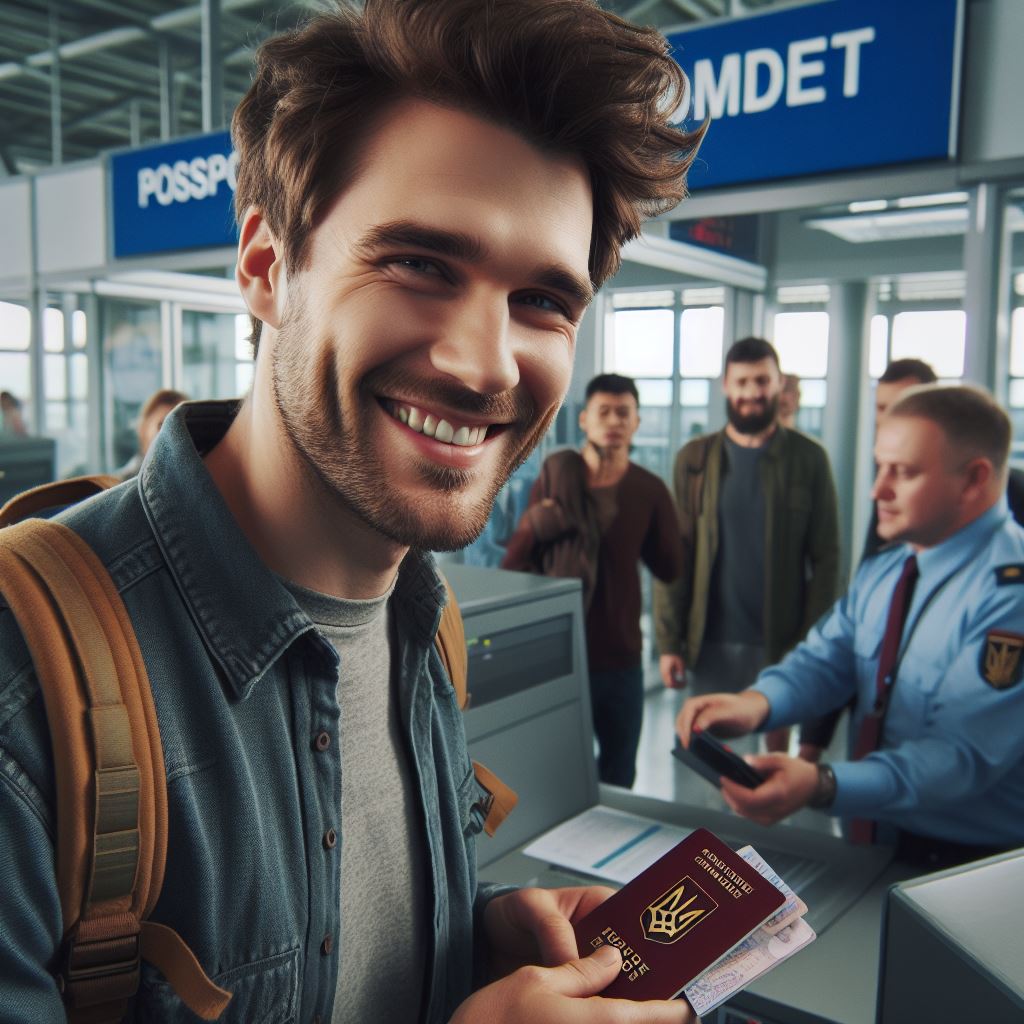GOING ABROAD INDEPENDENTLY - WITHOUT ACCOMPANIED PERSONS WITH DISABILITIES
Ukraine, as a state that cares for its citizens, ensures the right to cross the state border for persons with special needs and their companions. This right is regulated by the relevant legislative acts, which determine the conditions and necessary documents for making such trips.
The Ukrainian government established that during martial law, male citizens of Ukraine aged 18 to 60 have the right to travel outside of Ukraine accompanying a certain category of persons with disabilities.
In certain cases, male citizens of Ukraine between the ages of 18 and 60 may travel outside of Ukraine independently without persons with disabilities, if such persons are on consular registration, as confirmed by a certificate issued by a consular institution.
Such men can be men who:
1. Have a spouse (husband) from among persons with disabilities. It is necessary to have a certificate from a consular institution, documents (their notarized copies) confirming family ties and disability.
2. Have one of their parents or parents of their spouse (husband) from among persons with disabilities of group I or II.It is necessary to have documents (their notarized copies) confirming family ties, disability, as well as documents confirming joint residence (their declared or registered place of residence (stay) coincides with the declared or registered place of residence (stay) of their parents or parents of the wife (husband), or taking care of their parents or the parents of the wife (husband), which is confirmed by an act of establishing the fact of taking care of one of their parents or the parents of the wife (husband), or documents (certificates, certificates) about receiving compensation (benefits , allowances) for care.
3. Men who provide permanent care for persons with disabilities of the I or II group. It is necessary to have documents confirming disability, documents (certificates, certificates) on receipt of compensation (benefits, allowances) for care or an act of establishing the fact of providing care.
4.Men who are parents, guardians, custodians, adoptive parents, foster parents who are raising a child with a disability under the age of 18, in the presence of a child's birth certificate or documents confirming the relevant authority of a person accompanying a child with a disability (in the case accompanied by a guardian, custodian, one or both adoptive parents, foster parents), a certificate confirming the appointment of social assistance, in which the status of "child with disabilities" is indicated, or a certificate of receipt of state social assistance for children with disabilities, or an individual program rehabilitation of a child with a disability, or a medical report on a child with a disability under the age of 18 (notarized copies thereof).
5. Men who are parents who are dependent on an adult child who is a person with a disability of the I or II group, in the presence of his birth certificate and documents confirming the disability (their notarized copies).
6. Men who accompanied persons in need of constant care and are family members of the first degree of consanguinity.It is necessary to have documents confirming family ties and a conclusion of the medical and advisory commission of a health care institution about the need for permanent outside care or to be accompanied by a person who provides permanent care for the specified persons, in the presence of documents (certificates, certificates) about receiving compensation (aid, allowance) for care or a conclusion of the medical advisory commission of a health care institution about the need for permanent external care and an act of establishing the fact of care.
7. Men who are guardians of persons with disabilities who have been declared incompetent by a court. It is necessary to have a decision on the appointment of a guardian for such a person, and in the event that a guardian is not appointed for such a person - one of the adult members of the family of the first or second degree of consanguinity in the presence of documents confirming family ties, disability (their notarized copy);
8. Men who are fathers of children suffering from serious diseases on the list specified by the government.
Current rules for crossing the Ukrainian border should be clarified before the trip. You can get information about what documents are required for crossing the border from the lawyers of the "Consultant" service.
It is worth noting that men in the listed cases can freely return to Ukraine and leave Ukraine again in the event that the accompanied person is abroad. However, the specified categories of accompanying persons must return to Ukraine no later than the return to the territory of Ukraine of the persons they accompanied.
Thus, in accordance with the Cabinet of Ministers Resolution No. 1044 dated 10.09.2022, accompanying male citizens of Ukraine aged 18 to 60 may cross the border to leave Ukraine indefinitely.
You can accompany people with disabilities, people who need constant care, children with disabilities or people with a certain list of diseases.
The act of establishing the fact of providing care for another person who needs constant care is drawn up on the basis of an application by the person providing care to the relevant state authority or local self-government.
The legislation of Ukraine provides comprehensive support to persons with disabilities and their companions, guaranteeing them the right to unhindered crossing of the state border. This demonstrates the state's commitment to the principles of humanism and equality, as well as its desire to ensure the comfort and safety of its citizens when traveling abroad.
This information may change, so we recommend checking the data before planning your trip. Lawyers of the "Consultant" service can provide you with advice. You can get detailed information on how to go abroad, the rules for crossing the border, the rules for men going abroad during wartime, the procedure for crossing the border, what documents are required for crossing the border in your case, and other information according to your situation.





























